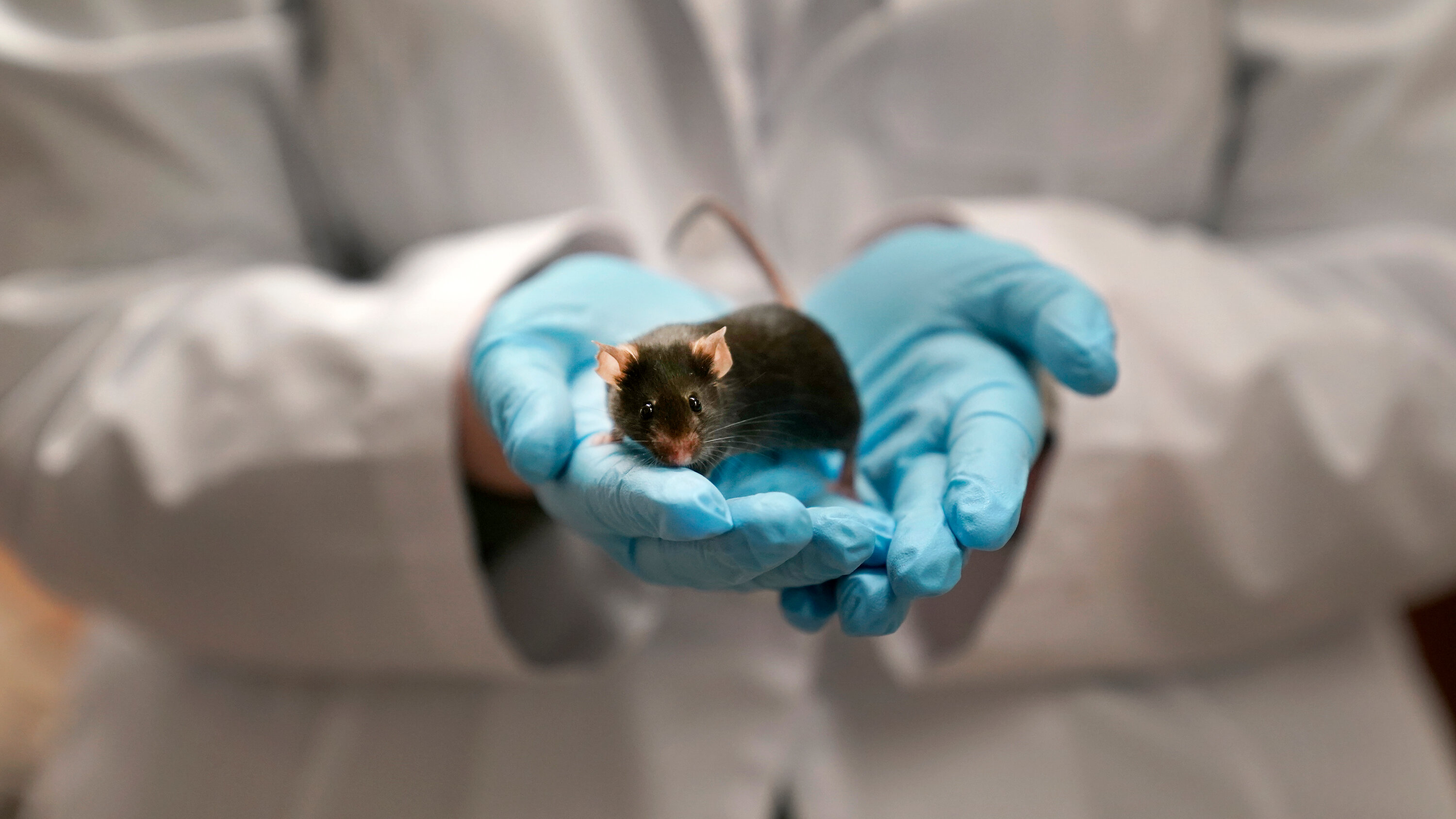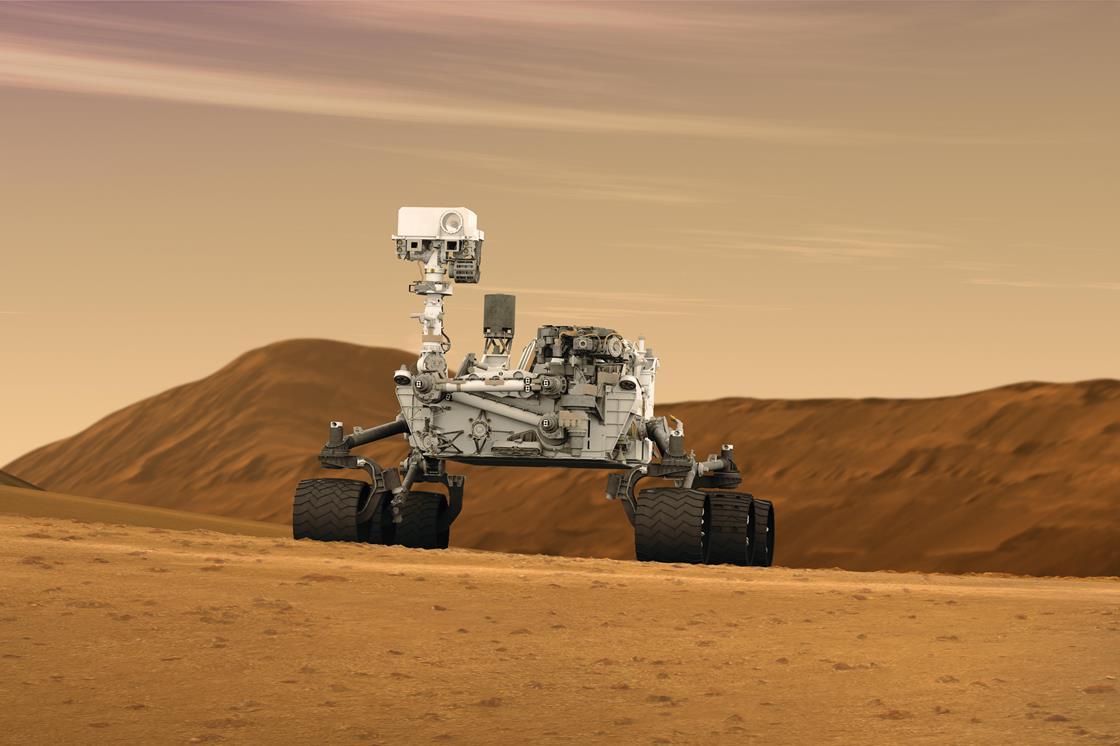Igniting Innovation: Chicago's Youth Accelerate into STEM Frontiers
Science
2025-04-29 10:00:16
Empowering Future Innovators: Chicago Pre-College Science and Engineering Program Breaks Barriers The Chicago Pre-College Science and Engineering Program is transforming educational opportunities for students from historically underrepresented backgrounds. By offering dynamic enrichment classes, the program aims to inspire and prepare young minds for exciting careers in STEM fields. Designed to bridge educational gaps, these specialized classes provide students with hands-on learning experiences that go beyond traditional classroom instruction. Participants gain critical skills, exposure to cutting-edge scientific concepts, and mentorship from experienced professionals in science and engineering. The program recognizes that diversity in STEM is crucial for driving innovation and solving complex global challenges. By targeting students who have been traditionally marginalized in scientific and technical disciplines, the initiative creates pathways to success that were previously unavailable. Through engaging workshops, laboratory experiences, and collaborative projects, students develop not just academic skills, but also the confidence and curiosity needed to pursue advanced studies and careers in science and engineering. The program stands as a beacon of opportunity, helping to reshape the future of STEM education and professional representation. MORE...
Breaking Barriers: How Bruker's Software Wizards Are Reshaping Scientific Innovation
Science
2025-04-29 09:55:00
Navigating Software Development in Science: Bruker's SCRUM Revolution
In the fast-paced world of scientific software development, Bruker's experts are pioneering a transformative approach that's reshaping how technical teams collaborate and innovate. At the heart of their strategy lies the SCRUM methodology—a dynamic framework that's breaking down traditional barriers and accelerating scientific software creation.
SCRUM isn't just a development process; it's a mindset that empowers teams to be more adaptive, transparent, and efficient. By embracing iterative development cycles, Bruker's teams can rapidly prototype, test, and refine complex scientific software solutions. This approach allows for unprecedented flexibility, enabling researchers and developers to respond quickly to emerging technological challenges.
Key benefits of the SCRUM approach include:
- Enhanced team communication and collaboration
- Faster product development cycles
- Greater adaptability to changing scientific requirements
- Improved quality control and continuous improvement
Through SCRUM, Bruker is not just developing software—they're revolutionizing how scientific technologies are conceived, created, and implemented. By breaking down complex projects into manageable sprints, their teams can maintain laser-focused productivity while maintaining the highest standards of scientific precision.
MORE...Research in Peril: Pandemic of Uncertainty Looms as Lab Animal Futures Hang in Balance
Science
2025-04-29 09:02:09
In the high-stakes world of biomedical research, a silent crisis is unfolding. Animal testing, long considered a cornerstone of scientific discovery, now faces an unprecedented challenge as research funding dwindles. The consequences are stark and heartbreaking: laboratory animals—from tiny mice to intelligent primates—are being euthanized at alarming rates. For decades, these research animals have been critical to groundbreaking medical advances, helping scientists understand complex diseases and develop life-saving treatments. Now, shrinking budgets are forcing research institutions to make devastating choices, with many laboratories forced to dramatically reduce their animal populations or shut down critical research programs entirely. Mice, rats, and even more sophisticated research subjects like monkeys, who have contributed immeasurably to our understanding of human biology, are now facing an uncertain future. Each animal represents not just a research subject, but a potential pathway to medical breakthroughs that could save countless human lives. The current funding crisis threatens to dismantle years of scientific progress, potentially setting back medical research by decades. As resources become increasingly scarce, the scientific community is left grappling with difficult decisions that could have long-lasting implications for medical innovation. MORE...
Local Science Prodigy Harlan Rowe Clinches Spot at Prestigious State Science Olympiad Nationals
Science
2025-04-29 09:00:00
Harlan Rowe Middle School's Talented Science Team Heads to State Science Olympiad Competition Exciting opportunities await the dedicated students from Harlan Rowe Middle School as they prepare to showcase their scientific prowess at the prestigious Pennsylvania State Science Olympiad national competition. On May 24, these young scholars will travel to the University to compete against top student teams from across the state, demonstrating their knowledge, problem-solving skills, and passion for scientific exploration. The students have worked tirelessly throughout the year, preparing and honing their skills in various scientific disciplines, and now have the chance to prove their academic excellence on a statewide stage. Their participation in this competitive event highlights the school's commitment to fostering scientific curiosity and academic achievement among its students. MORE...
Brilliant Minds Celebrated: Liberty Science Center Honors Four Visionary Geniuses
Science
2025-04-29 08:00:58
Liberty Science Center is set to celebrate innovation and brilliance at its 13th Annual Genius Gala, a prestigious event honoring extraordinary individuals who have made remarkable contributions to science, technology, and human achievement. The gala will take place on May 21 in Jersey City, promising an evening of inspiration and recognition for four exceptional honorees who have pushed the boundaries of human knowledge and creativity. This annual event continues to be a beacon of celebration for groundbreaking minds, showcasing the incredible potential of human intellect and innovation. By recognizing these outstanding individuals, Liberty Science Center reinforces its commitment to inspiring future generations of scientists, inventors, and visionaries. MORE...
Ocean Explorers Uncover Nature's Secrets: Young Scientists Dive into Biomimicry at Heal the Bay Summer Camp
Science
2025-04-29 05:55:41
Dive into Science: Heal the Bay's Exciting Summer Aquarium Camp for Kids This summer, young science enthusiasts have an incredible opportunity to explore marine life and environmental conservation through Heal the Bay's Aquarium Summer Science Camp. As a leading environmental nonprofit organization, Heal the Bay is committed to protecting and preserving the coastal waters and watersheds of Greater Los Angeles. The camp offers an immersive and engaging experience for children, allowing them to discover the wonders of marine ecosystems, learn about environmental stewardship, and develop a deeper understanding of ocean conservation. Through hands-on activities, interactive workshops, and expert-led sessions, campers will embark on an unforgettable scientific journey. Participants will have the chance to get up close with marine life, conduct fascinating experiments, and gain valuable insights into the critical work of environmental protection. Heal the Bay's passionate educators are dedicated to inspiring the next generation of environmental scientists and ocean advocates. Don't miss this extraordinary opportunity for your child to learn, explore, and make a difference this summer. Enroll now in Heal the Bay's Aquarium Summer Science Camp and watch your young scientist's curiosity and passion for marine life flourish! MORE...
Science Spectacular: Glasgow Festival Unveils Groundbreaking Lineup of Mind-Blowing Events
Science
2025-04-29 05:53:28
Glasgow is set to ignite scientific curiosity like never before! The city's renowned Glasgow Science Festival is unveiling its most ambitious and expansive programme to date, perfectly timed to coincide with Glasgow's momentous 850th anniversary celebrations. This year's festival promises an electrifying lineup of events that will spark imagination and wonder for science enthusiasts of all ages. From cutting-edge research presentations to interactive workshops and mind-blowing demonstrations, the programme represents a landmark moment in the city's rich scientific heritage. As Glasgow commemorates eight and a half centuries of history, the Science Festival stands as a testament to the city's enduring spirit of innovation and discovery. Attendees can look forward to an unprecedented range of activities that will showcase the latest scientific breakthroughs and inspire the next generation of researchers and innovators. Whether you're a curious student, a passionate science lover, or simply eager to explore the wonders of scientific knowledge, this year's festival offers something extraordinary for everyone. Get ready to be amazed as Glasgow transforms into a vibrant hub of scientific exploration and excitement! MORE...
Nets and Neurons: How a Gloucester Nonprofit is Revolutionizing Marine Research
Science
2025-04-29 00:17:00
Nestled along the picturesque Massachusetts coastline, the Gloucester Marine Genomics Institute (GMGI) is pioneering groundbreaking research at the intersection of marine science and biotechnology. This innovative research center is dedicated to unlocking the vast potential of marine organisms, transforming our understanding of ocean ecosystems and developing cutting-edge solutions for global challenges. GMGI's team of passionate scientists and researchers delve deep into marine genomics, exploring the genetic blueprints of marine life to uncover remarkable insights. Their work spans multiple disciplines, from marine biology to advanced genetic research, with a focus on understanding the unique adaptations of marine organisms. The institute's research has far-reaching implications across various fields. By studying marine organisms' genetic structures, GMGI is developing novel approaches to medical research, environmental conservation, and sustainable technologies. Their innovative projects range from investigating marine species' disease resistance to exploring potential pharmaceutical applications derived from ocean biodiversity. With state-of-the-art laboratories and a collaborative approach, GMGI is not just conducting research but also training the next generation of marine scientists. The institute serves as a critical hub for scientific discovery, bridging academic research with real-world applications and pushing the boundaries of marine biotechnology. As climate change and environmental challenges continue to impact our planet, GMGI's work represents a beacon of hope, demonstrating how scientific innovation can help us better understand and protect our marine ecosystems. MORE...
Voyage of Discovery: Viking Cruise Passengers Dive Deep into Great Lakes Science
Science
2025-04-29 00:00:00
Exploring the Great Lakes: Viking Octantis Brings Adventure to Alpena The Viking Octantis made its triumphant return to Thunder Bay this Saturday, marking its fourth consecutive year of maritime exploration in the region. The impressive cruise ship arrived with a vibrant community of 372 eager travelers and 261 dedicated crew members, including a team of passionate scientists committed to research across the Great Lakes and beyond. As the vessel anchored gracefully in Thunder Bay, passengers eagerly disembarked via tender boats, ready to experience the unique charm of Alpena. The ship's scientific contingent adds a distinctive educational dimension to the voyage, transforming this cruise into more than just a typical travel experience. The Viking Octantis continues to showcase the perfect blend of adventure, exploration, and scientific discovery, bringing international attention to the beautiful maritime landscapes of Michigan's coastal regions. MORE...
Cracking the Mars Mystery: Scientists Inch Closer to Breakthrough Discovery
Science
2025-04-29 00:00:00
The vanishing act of carbon dioxide on Mars has long been a scientific enigma. Researchers have been scratching their heads, trying to unravel the mystery of what happened to the massive amounts of greenhouse gases that once transformed the Red Planet into a potentially habitable world. For years, scientists have been piecing together clues about the planet's dramatic climate transformation, seeking to understand how and where the planet's ancient atmospheric carbon dioxide disappeared. This puzzling atmospheric mystery suggests that Mars once had a much thicker, warmer atmosphere capable of supporting liquid water and potentially even primitive life. The disappearance of these critical greenhouse gases represents a crucial chapter in understanding the planet's dramatic environmental evolution, challenging our current understanding of planetary climate dynamics and offering tantalizing hints about Mars' complex geological history. MORE...
- 1
- 2
- 3
- 4
- 5
- 6
- 7
- 8
- 9
- 10
- 11
- 12
- 13
- 14
- 15
- 16
- 17
- 18
- 19
- 20
- 21
- 22
- 23
- 24
- 25
- 26
- 27
- 28
- 29
- 30
- 31
- 32
- 33
- 34
- 35
- 36
- 37
- 38
- 39
- 40
- 41
- 42
- 43
- 44
- 45
- 46
- 47
- 48
- 49
- 50
- 51
- 52
- 53
- 54
- 55
- 56
- 57
- 58
- 59
- 60
- 61
- 62
- 63
- 64
- 65
- 66
- 67
- 68
- 69
- 70
- 71
- 72
- 73
- 74
- 75
- 76
- 77
- 78
- 79
- 80
- 81
- 82
- 83
- 84
- 85
- 86
- 87
- 88
- 89
- 90
- 91
- 92
- 93
- 94
- 95
- 96
- 97
- 98
- 99
- 100
- 101
- 102
- 103
- 104
- 105
- 106
- 107
- 108
- 109
- 110
- 111
- 112
- 113
- 114
- 115
- 116
- 117
- 118
- 119
- 120
- 121
- 122
- 123
- 124
- 125
- 126
- 127
- 128
- 129
- 130
- 131
- 132
- 133
- 134
- 135
- 136
- 137
- 138
- 139
- 140
- 141
- 142
- 143
- 144
- 145
- 146
- 147
- 148
- 149
- 150
- 151
- 152
- 153
- 154
- 155
- 156
- 157
- 158
- 159
- 160
- 161
- 162
- 163
- 164
- 165
- 166
- 167
- 168
- 169
- 170
- 171
- 172
- 173
- 174
- 175
- 176
- 177
- 178
- 179
- 180
- 181
- 182
- 183
- 184
- 185
- 186
- 187
- 188
- 189
- 190
- 191
- 192
- 193
- 194
- 195
- 196
- 197
- 198
- 199
- 200
- 201
- 202
- 203
- 204
- 205
- 206
- 207
- 208
- 209
- 210
- 211
- 212
- 213
- 214
- 215
- 216
- 217
- 218
- 219
- 220
- 221
- 222
- 223
- 224
- 225
- 226
- 227
- 228
- 229
- 230
- 231
- 232
- 233
- 234
- 235
- 236
- 237
- 238
- 239
- 240













